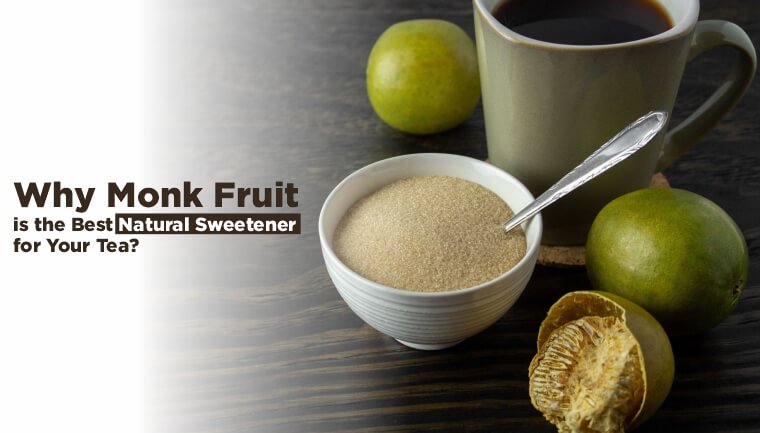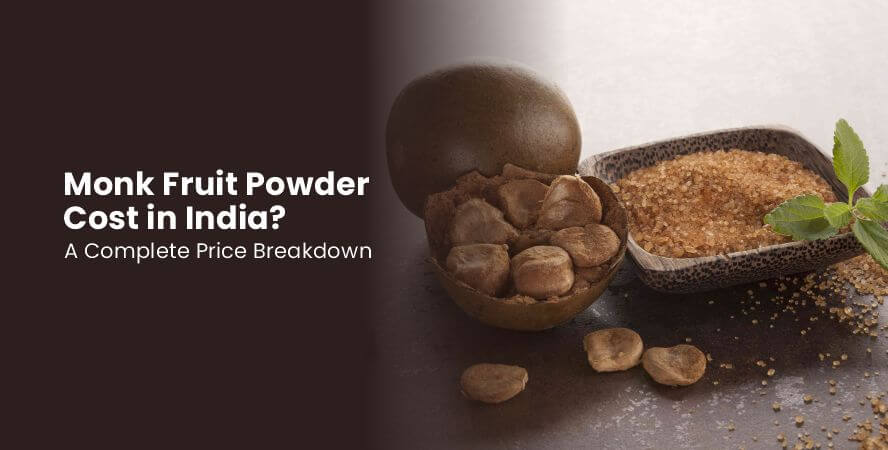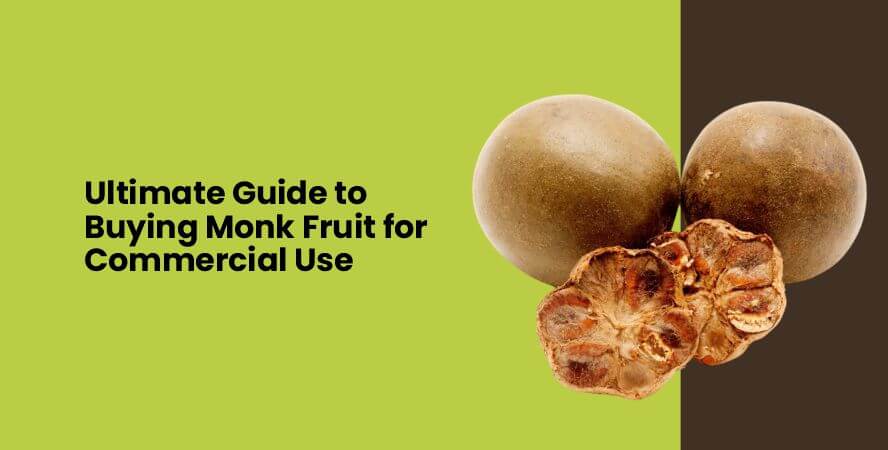India’s dietary habits are evolving rapidly. With rising awareness around climate change, wellness, and conscious living, more Indians are choosing plant-based, eco-friendly, and health-centric diets. In this shift, natural sugar alternatives like monk fruit sweetener are gaining attention, not only for their health benefits but also for their minimal environmental footprint.
At MONKNECTAR, we believe in nurturing wellness that respects both your body and the planet. In this article, we’ll explore how monk fruit sweetener aligns with India’s eco-conscious food movement and why it’s a sustainable choice for today’s mindful consumer.
The Rise of Eco-Conscious Eating in India
India’s traditional food culture has always leaned toward vegetarianism, seasonal eating, and home-cooked meals. But today’s eco-conscious diet goes a step further:
-
Reducing sugar intake for better metabolic health.
-
Cutting down on processed foods and artificial sweeteners.
-
Supporting plant-based nutrition.
-
Choosing products with a low environmental impact.
This new wave of eating is driven by people who care about where their food comes from, how it affects the earth, and what it does to their bodies. In this context, monk fruit sweetener isn’t just a sugar substitute—it’s part of a conscious lifestyle.
What Is Monk Fruit and Why Is It Different?
Monk fruit, or Luo Han Guo, is a small green melon native to Southeast Asia. It’s been used for centuries in traditional medicine, but it’s only recently gained popularity worldwide as a natural zero-calorie sweetener.
Unlike chemical-based sweeteners, monk fruit sweetener:
-
It is derived naturally from fruit.
-
Contains zero sugar and zero calories.
-
Has a low glycemic index, making it ideal for diabetics.
-
Requires minimal processing to retain sweetness.
At MONKNECTAR, our monk fruit sweetener is made with carefully sourced monk fruit extract, blended and packaged to meet your clean-label expectations.
How Monk Fruit Supports a Sustainable Lifestyle?
Let’s dig deeper into how monk fruit sweetener fits into an environmentally responsible diet:
1. Naturally Grown, Less Harmful to the Planet
Monk fruit is cultivated with minimal pesticide use and doesn’t require genetically modified organisms (GMOs) to grow. Compared to sugarcane or corn (used in high-fructose syrups), monk fruit’s cultivation is gentler on the soil and water supply, contributing to long-term agricultural sustainability.
2. Reduces Demand for Refined Sugar
The refined sugar industry has a significant environmental cost—massive water usage, chemical runoff, and carbon emissions from processing. By replacing sugar with monk fruit in your tea, coffee, or baking, you’re helping reduce demand for ecologically intensive crops like sugarcane.
3. Zero-Calorie = Less Overconsumption
Monk fruit’s high sweetness (150–200x sweeter than sugar) means you use much smaller quantities, which helps curb overuse and reduces food waste. It supports mindful consumption—a core principle in sustainable eating.
4. Low-Impact Packaging from MONKNECTAR
We ensure our packaging aligns with sustainability goals. Our monk fruit sweetener is available in eco-conscious packaging with options that support recycling or minimal waste. This small step adds up in reducing the plastic footprint of everyday grocery products.
Monk Fruit: Health & Wellness Benefits That Matter
A product that supports the planet and your health? That’s a rare find. Here’s how monk fruit sweetener benefits your body:
-
Helps Manage Blood Sugar: Ideal for diabetics or prediabetics.
-
Supports Weight Control: No calories = no guilt in your desserts.
-
No Bitter Aftertaste: Unlike some stevia products, monk fruit offers a clean, natural sweetness.
-
All-Natural & Non-Toxic: Contains no synthetic chemicals or artificial sweeteners like aspartame or sucralose.
Deliciously Versatile: How to Use Monk Fruit Sweetener?
Whether you’re on a vegan, keto, diabetic, or clean-eating diet, monk fruit sweetener fits right in. You can use it for:
-
Daily beverages: Coffee, tea, smoothies.
-
Baking: Cakes, cookies, muffins.
-
Cooking: Sauces, chutneys, and marinades.
-
Snacking: Mix it into nut butters, yogurt, or protein shakes.
MONKNECTAR offers versatile forms of monk fruit sweetener, so you can choose the format that works best for your kitchen routine.
Why India Is Ready for Monk Fruit?
India is uniquely positioned to embrace monk fruit sweetener for multiple reasons:
-
A growing diabetic population is looking for safe alternatives to sugar.
-
A shift toward holistic Ayurvedic wellness and natural remedies.
-
Urban consumers are demanding clean labels and sustainable products.
-
A revival of plant-based living, particularly among younger generations.
MONKNECTAR is proud to bring monk fruit to Indian households, not as a trend, but as a long-term wellness companion.
How to Make the Smart Switch?
Here are some tips for introducing monk fruit sweetener into your life:
-
Start Small
Use a small amount—it’s intensely sweet! -
Read the Label
Choose blends with natural carriers like erythritol if you want a sugar-like texture. -
Experiment & Replace Gradually
Replace sugar in one drink or recipe at a time. This makes the switch smoother and more sustainable. -
Support Brands That Align with Your Values
When you buy from MONKNECTAR, you’re choosing a company that respects your health, your values, and the planet.
Conclusion: Sweetness That Respects the Earth
Monk fruit sweetener isn’t just another diet product—it’s part of a larger shift toward eco-conscious living. By embracing it, you’re making a healthier choice for yourself and a gentler choice for the Earth.
At MONKNECTAR, we’re committed to bringing this ancient fruit into your modern kitchen with transparency, care, and purpose.
Ready to make the switch? Explore our range of monk fruit products designed for the eco-conscious Indian consumer, only on MONKNECTAR – the leading monk fruit supplier in India.








